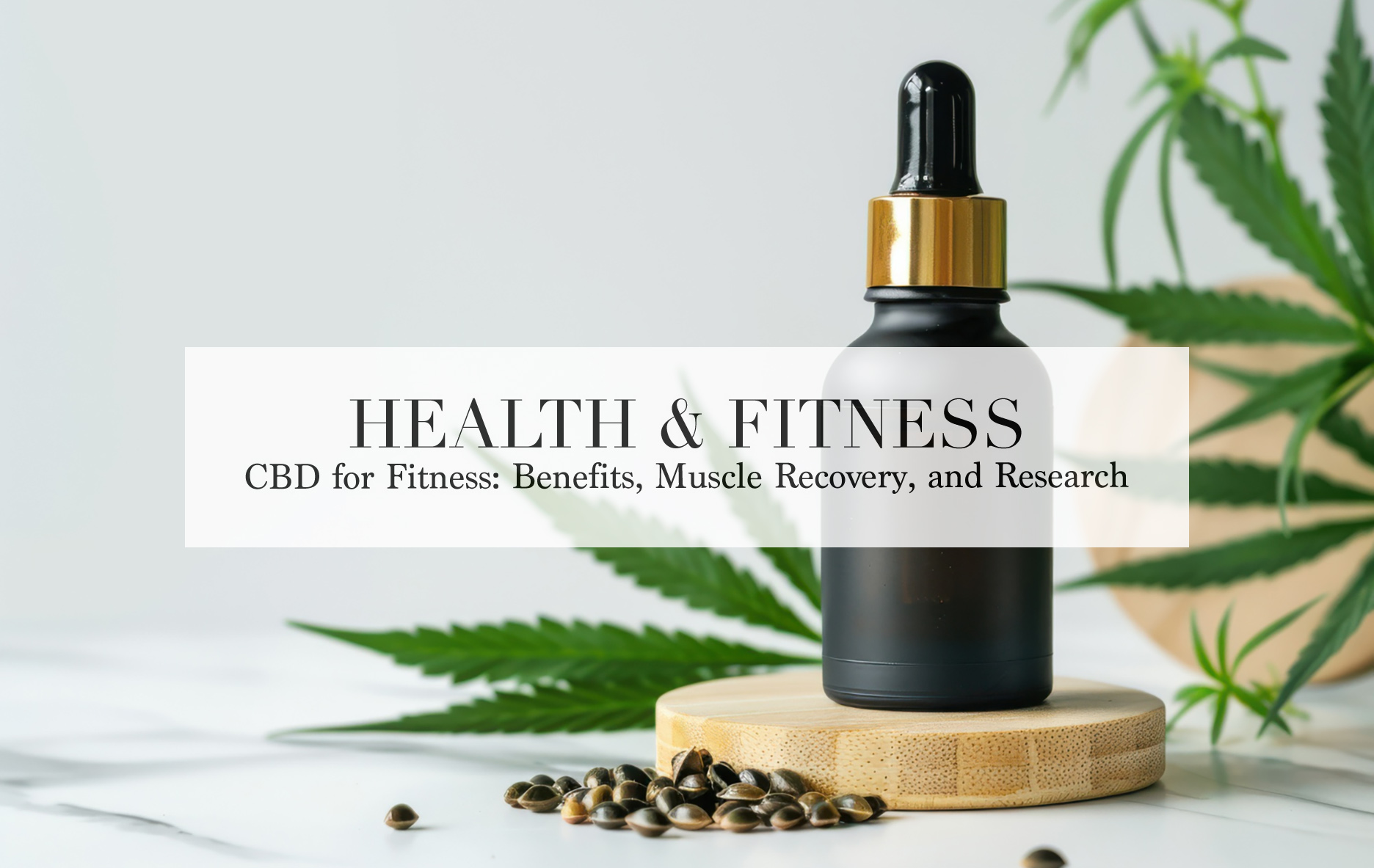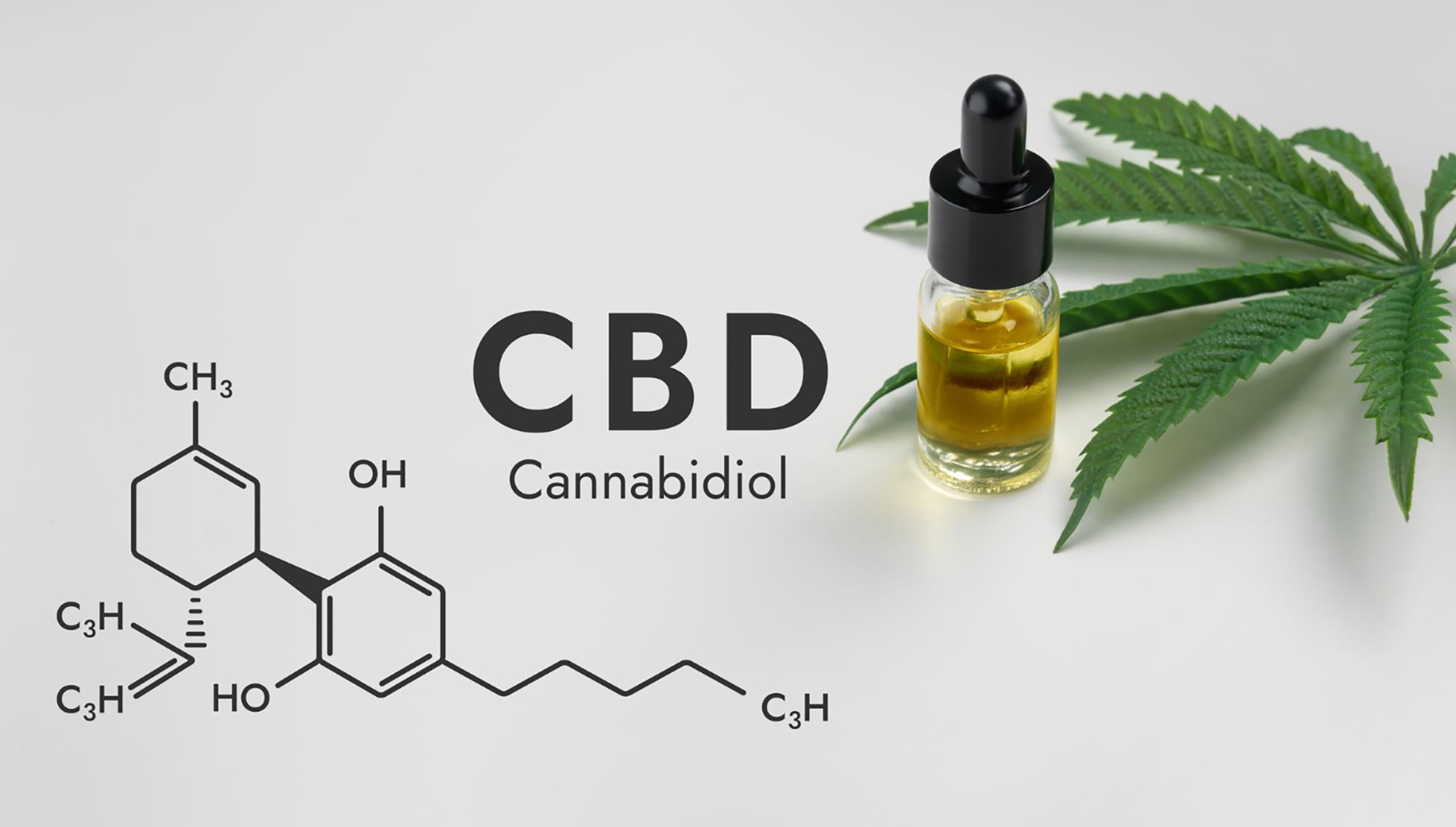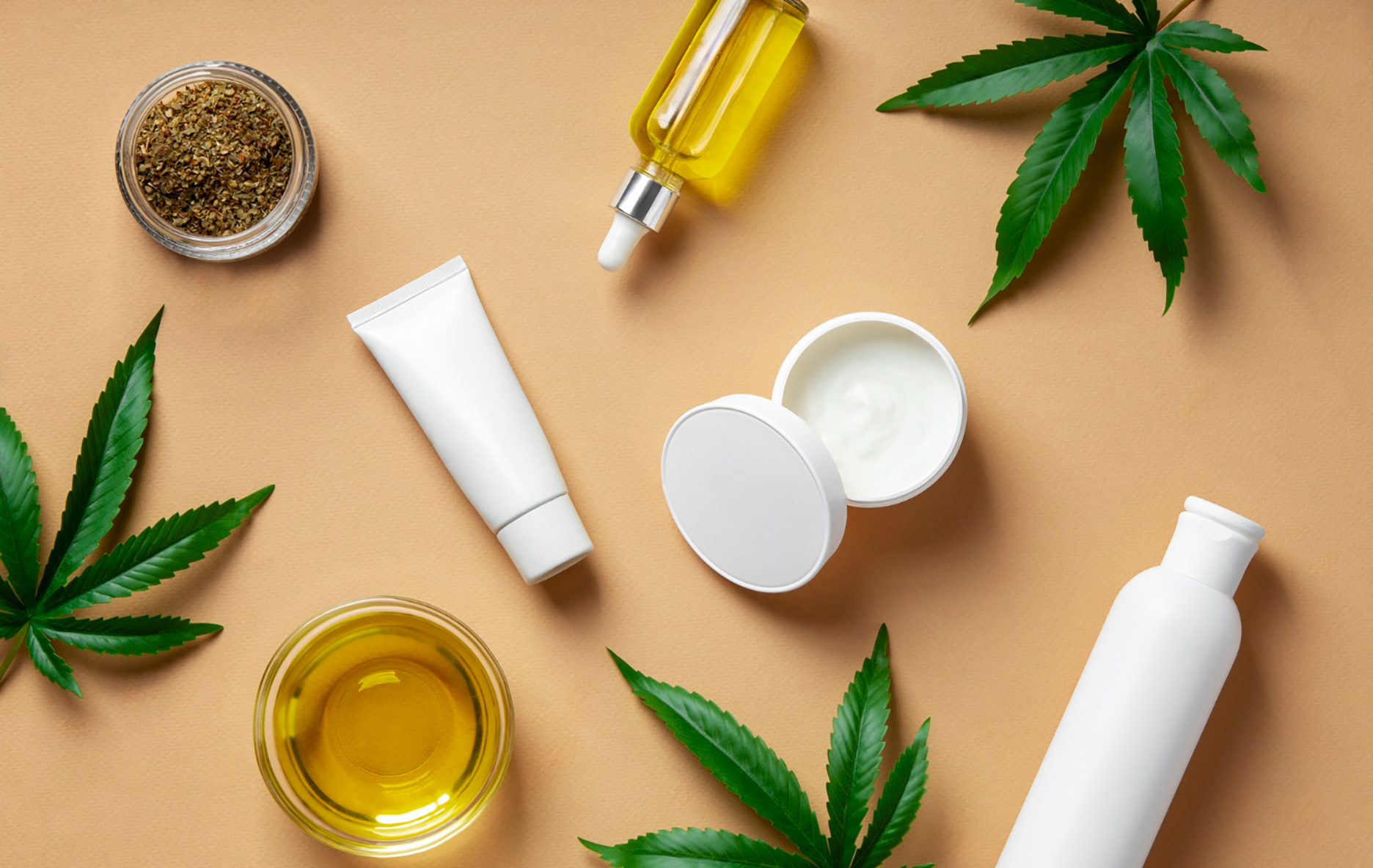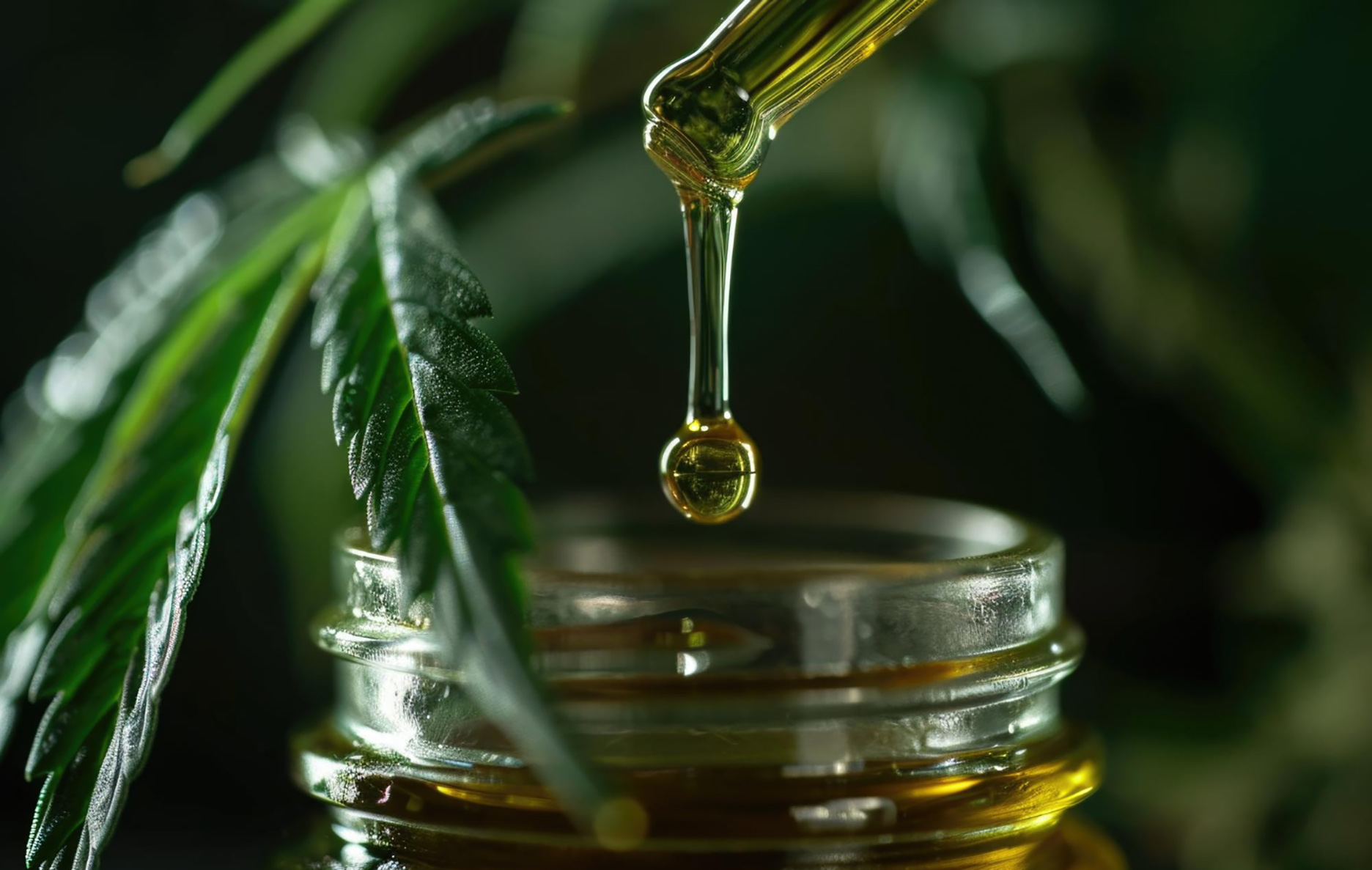In recent years, the fitness and bodybuilding community has seen a surge in interest around cannabidiol, commonly known as CBD. CBD is a non-psychoactive compound found in the cannabis plant, primarily in its hemp variety. Unlike THC (tetrahydrocannabinol), CBD does not produce the ‘high’ associated with marijuana. Instead, it is lauded for its potential therapeutic benefits, including pain relief, anxiety reduction, and anti-inflammatory properties. This article explores how CBD might support fitness enthusiasts and bodybuilders in their pursuit of peak physical performance and muscle growth.
The Science Behind CBD
Understanding the Endocannabinoid System
To comprehend how CBD might aid fitness and muscle building, it is crucial to understand the endocannabinoid system (ECS). The ECS is a complex cell-signalling system identified in the early 1990s. It comprises endocannabinoids, receptors (CB1 and CB2), and enzymes that break down endocannabinoids. This system plays a significant role in regulating a variety of functions and processes, including sleep, mood, appetite, and inflammation.
CBD interacts with the ECS by indirectly influencing the receptors, leading to various therapeutic effects. For instance, while it does not bind directly to CB1 receptors in the brain (responsible for the psychoactive effects of THC), it can modulate them in a way that enhances the system’s natural endocannabinoids like anandamide. This modulation may be the key to CBD’s potential benefits in fitness and muscle recovery.
CBD’s Role in Fitness
Pain Management and Anti-Inflammatory Properties
One of the primary ways CBD may benefit fitness enthusiasts and bodybuilders is through its pain-relieving and anti-inflammatory effects. Intense workouts often lead to muscle soreness and inflammation, which, if unmanaged, can hinder performance and recovery. Studies suggest that CBD can reduce pain by influencing the ECS and other neural systems responsible for pain perception .
For bodybuilders, managing inflammation is crucial as chronic inflammation can impair muscle recovery and growth. CBD’s anti-inflammatory properties may help reduce exercise-induced inflammation, allowing for quicker recovery times and more effective training sessions .
Muscle Recovery and Relaxation
The process of muscle building involves microtears in muscle fibres during workouts, followed by a repair phase that strengthens the muscles. Efficient recovery is essential for muscle growth, and this is where CBD might play a role. Research indicates that CBD could enhance muscle recovery by reducing muscle spasms, tension, and soreness . Additionally, its potential to improve sleep quality can further aid recovery, as sleep is a critical period for muscle repair and growth .
Stress and Anxiety Reduction
CBD is also noted for its anxiolytic (anxiety-reducing) properties. For athletes and bodybuilders, mental well-being is as important as physical health. Anxiety can affect performance, motivation, and overall training effectiveness. By potentially reducing anxiety and stress, CBD can help athletes maintain a positive mindset, focus better on their training, and handle the pressures of competition .
Enhancing Focus and Energy
There is emerging evidence suggesting that CBD might aid in enhancing focus and energy levels. While more research is needed in this area, some users report that CBD helps them maintain a steadier energy level throughout their workouts and improves their concentration. This could be due to CBD’s balancing effect on the body’s systems, helping to mitigate the peaks and troughs in energy levels that can occur during intense training .
Using CBD for Fitness
Forms of CBD
CBD is available in various forms, each with its own advantages depending on the user’s needs:
- Oils and Tinctures: These are liquid extracts taken under the tongue for quick absorption into the bloodstream.
- Capsules and Edibles: These provide a convenient and precise dosage but take longer to be absorbed.
- Topicals: Creams, balms, and lotions infused with CBD can be applied directly to sore muscles for targeted relief.
- Vapes: Inhaling CBD can offer fast relief, but the effects may not last as long as other methods.
Dosage and Timing
Determining the right dosage of CBD is highly individual and depends on factors such as body weight, the severity of symptoms, and the form of CBD used. It is generally recommended to start with a low dose and gradually increase until the desired effect is achieved. For fitness purposes, timing can be crucial. Some prefer taking CBD before a workout to reduce anxiety and improve focus, while others find it more beneficial post-exercise to aid in recovery.
Legal Considerations
In the UK and many other countries, CBD is legal provided it contains less than 0.2% THC and is derived from approved industrial hemp strains. However, athletes should be cautious and choose products that are third-party tested to ensure they are free of THC and other banned substances, especially those subject to drug testing.
Potential Side Effects
While CBD is generally well-tolerated, it can cause side effects in some individuals. These may include dry mouth, dizziness, changes in appetite, and diarrhoea . It is also essential to consult with a healthcare provider before starting CBD, especially for those taking other medications or with pre-existing health conditions.
What Does the Research Say?
Current Studies and Findings
While the body of research on CBD’s effects on fitness and muscle building is still growing, preliminary studies are promising. For instance, a study published in the “European Journal of Pain” showed that CBD could help reduce pain and improve the quality of life in people with chronic pain conditions . Another study highlighted CBD’s potential in reducing anxiety levels, which can indirectly benefit athletic performance .
Research specifically on CBD and muscle growth is limited. However, its known effects on reducing inflammation and aiding recovery suggest a supportive role in the muscle-building process. More extensive, controlled studies are needed to draw definitive conclusions.
Anecdotal Evidence and User Experiences
Many athletes and fitness enthusiasts report positive experiences with CBD, citing benefits such as faster recovery times, reduced muscle soreness, and improved sleep quality. Professional athletes, including MMA fighters and NFL players, have publicly endorsed CBD for its recovery benefits . While anecdotal evidence is not a substitute for scientific research, it can provide valuable insights into potential benefits and uses.
Practical Tips for Incorporating CBD into Your Fitness Regimen
Start Small
Begin with a low dose of CBD and gradually increase it to find what works best for you. Monitor how your body responds and adjust accordingly.
Choose Quality Products
Opt for CBD products that are third-party tested for purity and potency. This ensures you are getting a product that is free from contaminants and accurately labelled.
Combine with a Balanced Regimen
CBD should complement a balanced fitness and nutrition regimen. It is not a substitute for proper diet, exercise, and recovery practices.
Monitor Effects
Keep a journal to track your CBD intake and its effects on your workouts, recovery, and overall well-being. This can help you fine-tune your usage for optimal benefits.
CBD is emerging as a promising supplement for fitness enthusiasts and bodybuilders, offering potential benefits in pain management, inflammation reduction, muscle recovery, and stress relief. While more research is needed to fully understand its effects and establish concrete guidelines, the current evidence and user experiences suggest that CBD could be a valuable addition to a fitness regimen. As with any supplement, it is important to approach CBD use thoughtfully and in consultation with healthcare professionals to ensure it aligns with your individual health and fitness goals.
CBD represents a new frontier in sports and fitness supplementation, one that aligns well with a holistic approach to health and wellness. Whether you are a seasoned athlete or just starting your fitness journey, exploring CBD’s potential benefits could provide that extra edge in achieving your physical performance and muscle-building goals.
References
- Shannon, S., et al. (2019). Cannabidiol in Anxiety and Sleep: A Large Case Series. The Permanente Journal.
- Corroon, J., & Phillips, J. A. (2018). A Cross-Sectional Study of Cannabidiol Users. Cannabis and Cannabinoid Research.
- Blessing, E. M., et al. (2015). Cannabidiol as a Potential Treatment for Anxiety Disorders. Neurotherapeutics.
- Turner, S. E., et al. (2017). The Therapeutic Potential of Cannabidiol (CBD) for Sports Recovery. Journal of Sports Medicine.
- Vuckovic, S., et al. (2018). Cannabinoids and Pain: New Insights From Old Molecules. Frontiers in Pharmacology.
- Kogan, N. M., et al. (2013). Cannabinoids in the Management of Difficult to Treat Pain. Journal of Pain Research.
- Philpott, H. T., et al. (2017). Attenuation of Early Phase Inflammation by Cannabidiol Prevents Pain and Nerve Damage in Rat Osteoarthritis. Pain.
- Schilling, S., et al. (2019). Cannabidiol Reduces Intestinal Inflammation. Phytotherapy Research.
- Gruber, S. A., et al. (2016). Splendor in the Grass? A Pilot Study Assessing the Impact of Medical Marijuana on Executive Function. Frontiers in Pharmacology.
- Nagarkatti, P., et al. (2009). Cannabinoids as Novel Anti-Inflammatory Drugs. Future Medicinal Chemistry.
- Shannon, S., & Opila-Lehman, J. (2015). Cannabidiol Oil for Decreasing Addictive Use of Marijuana: A Case Report. Integrative Medicine: A Clinician’s Journal.




